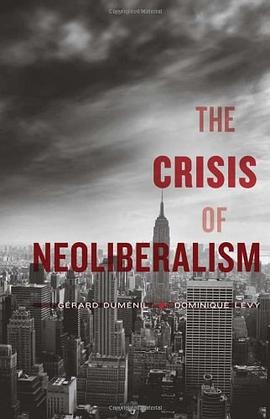The Crisis of Neoliberalism
豆瓣
Gérard Duménil / Dominique Lévy
简介
French economists Gérard Duménil and Dominique Lévy proceed from the somewhat heterodox proposition that ruling ideas arise not from their persuasive power or inner logic but from the interest of ruling groups...Duménil and Lévy move directly to the social and political history that led us to this turn, the underlying situation in which such intellectually bankrupt ideas could prevail. And what might become of a world that can no longer sustain such beliefs...Though elements of their analysis proceed (in their words) "à la Marx," the book is scarcely what one might thereby expect--that is, the opposite of [an] unreflective apologia for capitalism's premises...The two argue...that neoliberalism is not a collection of theories meant to improve the economy. Instead, it should be understood as a class strategy designed to redistribute wealth upward toward an increasingly narrow fraction of folks. This transfer is undertaken, they argue, with near indifference to what happens below some platinum plateau--even as the failures and contradictions of the economic system inevitably drive the entire structure toward disaster. Duménil and Lévy offer two provocative and interlocking schemas. They decline the bluntest of Marxist oppositions, which supposes a world divided only between owners and workers. But they equally abjure the endless proliferation of categories and distinctions, the slippery slope of micro-differences that leads to the paradoxical homily of conventional American thought: that individuals are just that, and thereby classless--and that everybody is middle-class. One might well see in this the shadow of Thatcher's other hyperbolic dictum of neoliberalism: 'There is no such thing as society. There are only individuals and families.'
contents
Introduction
I. The Strategy of the U.S. Upper Classes in Neoliberalism: The Success and Failure of a Bold Endeavor
II. The Second Reign of Finance: Classes and Financial Institutions
III. A Tripolar Class Configuration: Breaking Wage-Earning Homogeneity
IV. Financialization and Globalization: Lifting Barriers-Losing Control
V. Neoliberal Trends: The U.S. Macro Trajectory
VI. From the Housing Boom to the Financial Crisis: U.S. Macroeconomics after 2000
VII. Financial Crisis: Storm in the Center- Global Capitalism Shaken
VIII. The Shadow of the Great Depression: Difficult Transitions
IX. A New Social and Global Order: The Economics and Politics of the Postcrisis

